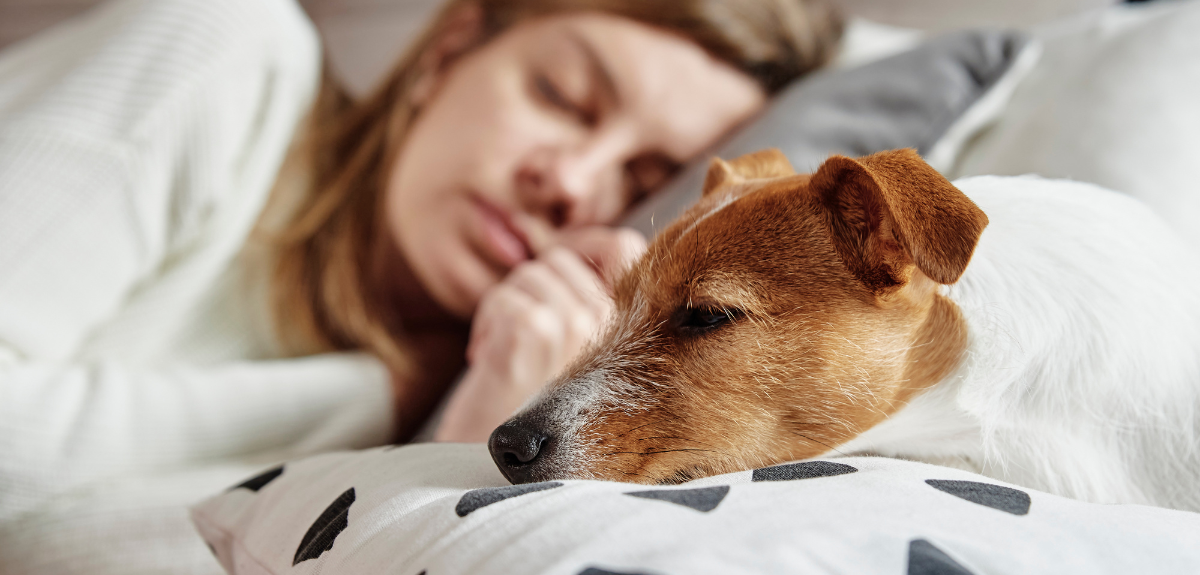Dogs are opportunistic creatures, meaning they are motivated by access to “resources” they value. And of course, every dog has their own preferences based on their personality.
For your dog, a valued resource might include cuddles, treats, attention from certain people, playtime, food, and more. Some dogs love sleeping with their humans, while others don’t enjoy it at all.
Coby, my big, fluffy black dog, doesn’t want to sleep with us. He gets too warm. He much prefers the comfort of the sofa or one of his big dog beds. On hot days, he even chooses the floor. At other times of the day, you might find him stretched out on our bed. He’s allowed there, but it’s not his usual sleeping spot. Tchili, our late little terrier, refused to sleep in our bed, as she had her own comfy beds. She didn’t like movement around her. Her little sleeping nest gave her a peaceful retreat. Dragon, our late Boston Terrier, wasn’t allowed to sleep in our room because his snoring was just too loud. He slept on the living room couch instead.
Dominant?
Dominance is defined as a relationship between two or more individuals that is established through force, aggression, and submission in order to access resources. Many behaviors that are often wrongly labeled as dominance come from a decades-old study that observed captive wolves. The environment of captivity limited their territory and changed their resource behaviors. Later studies on wolves in the wild showed different dynamics.
There is also no clear consensus on whether dominance exists between two different species. It’s important to distinguish between dominance, which is about competition for resources, and predator-prey relationships.
Dogs were domesticated roughly 20,000 years ago. Their behavior is no longer the same as their ancestor, the wolf. Today’s dogs are not in a constant struggle for survival, at least I hope not. Personally, I aim to have a relationship with my dog that is built on leadership and friendship. I want my dog to want to do what I ask (like coming when called) because they trust me and know it’s a positive experience. I don’t want a relationship based on anxiety or fear of punishment.
Anxiety?
That said, behaviors that are sometimes interpreted as dominance are often rooted in fear or anxiety. A dog that growls in a new situation is expressing discomfort, not attempting to assert dominance. We’ll explore that more in other articles.
Own Your Choice





